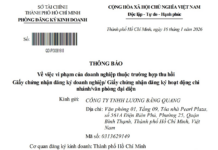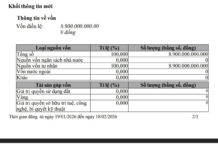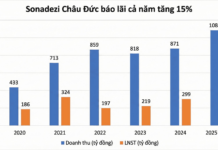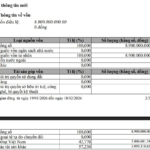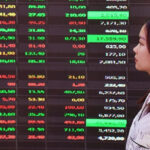A leader of a manufacturing company currently owes taxes in Hanoi shared that since the COVID-19 pandemic, the company has been struggling. According to the company representative, labor costs and input material prices have increased while the quantity of goods sold has decreased due to people reducing their spending.

Business hopes to be supported to overcome difficult times (Illustrative image).
“A large quantity of inventory has eroded accumulated profits. We have calculated various ways to survive, from reducing production costs, reducing labor, and downsizing factories. For companies, it is not uncommon to have tax debts. Because tax debts will result in the suspension of issuing invoices and the inability to sell goods. During this period, we hope that the tax authorities will have supportive policies such as extending the time for tax payment,” the company suggests.
As the second-largest entity managing a large number of companies in the country, since the end of 2023, the Hanoi Tax Department has announced a series of solutions to cope with the issue of tax arrears such as inviting companies to work and listen to difficulties, and find solutions to support them. However, the number of companies and individuals owing taxes managed by the Hanoi Tax Department continues to increase.
By the end of 2023, there were over 2,200 businesses in Hanoi owing nearly 1,000 billion VND in taxes. Among them, many companies owe a large amount of tax such as the Vietnam Industrial Corporation owed 75.8 billion VND, the Cultural – Information Publishing House Joint Stock Company owes 19 billion VND; Thanh Nam Group owes over 14 billion VND; Tăng Thành Công International Co., Ltd. owes 13 billion VND… One of the main debts of companies is the land use fees for investment projects to build and sell residential houses, combined with renting.
Economist Ngô Trí Long believes that companies face difficulties in rolling over capital for production and business, so they owe taxes in order to have capital for continued investment.
“When a company is enforced to stop using invoices or when the representative is prohibited from leaving the country, it will be very difficult to generate revenue. Therefore, tax authorities should have solutions to support companies in maintaining their revenue. Only when there is revenue can companies have the funds to pay taxes,” suggested Mr. Long.

